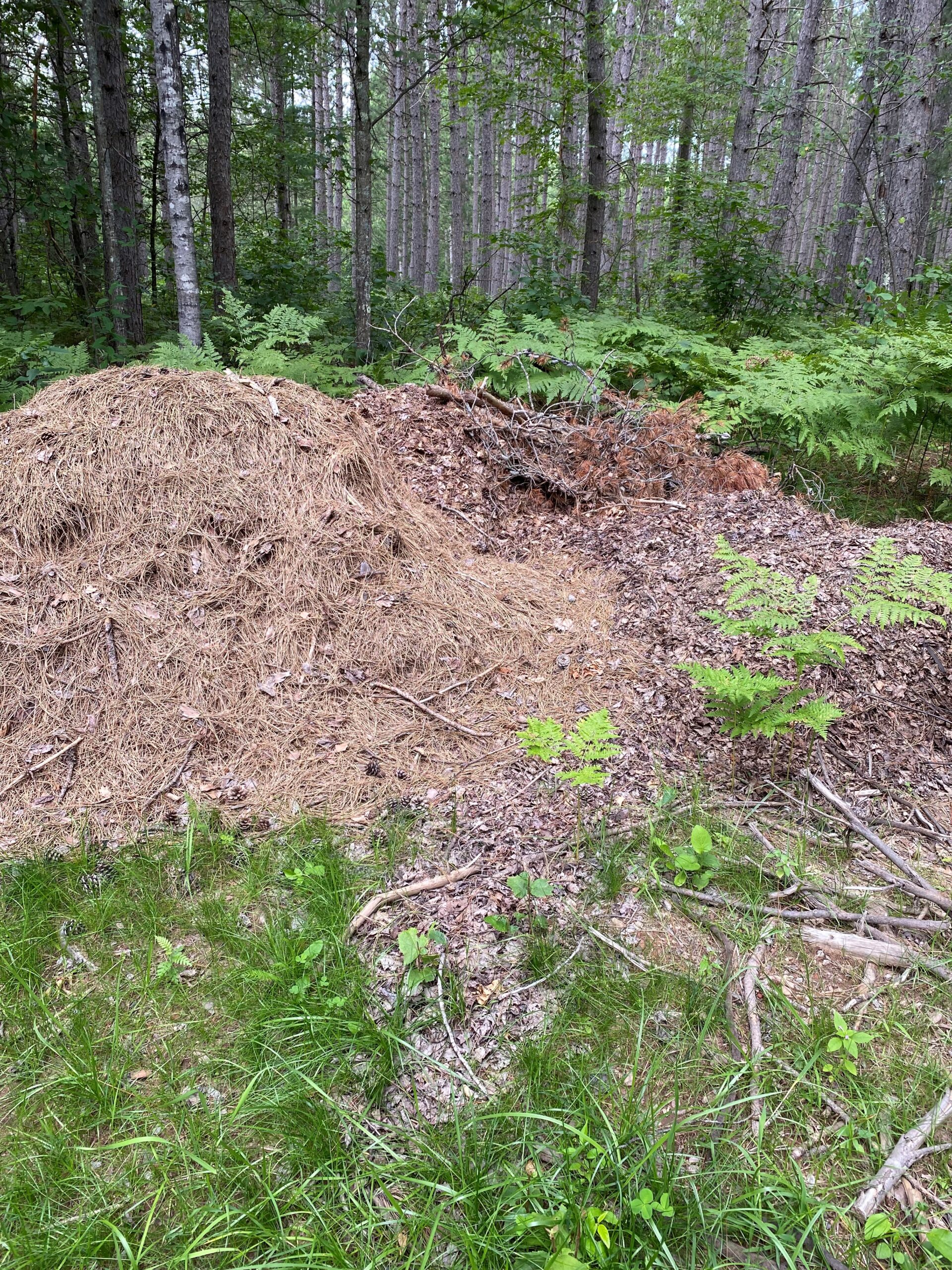By Jaqi Christopher, DNR Forest Invasive Plant Specialist, Rhinelander, Jacquelyn.christopher@wisconsin.gov
When cleaning up your garden this fall, be sure to dispose of yard waste properly. Not only is dumping on public lands illegal, but it is harmful to the environment.

This garden waste was dumped along an ATV trail in a state forest and can be a pathway for invasive plants and diseases that affect our public lands. Photo: Wisconsin DNR
Natural materials like plants, branches and soil from your yard may seem harmless to dump in the woods since they are already found there, but this can be a pathway for invasive plants. Invasive and non-native plants can sometimes resprout, allowing them to establish in new areas. Seeds and invasive earthworms can be transferred in garden debris, as well.
Composting is the preferred method for dealing with garden waste. It is easy to start a small backyard compost in a bin or heap. Also, many municipalities have local yard waste options available.
If you think there are invasive species in your yard waste, do not compost. Most compost piles do not generate enough heat, which destroys the seeds of invasive plants. Burning invasive plants is an option, but landowners must check local burning restrictions and permit requirements before burning yard waste. The DNR recommends placing invasive plants in clear bags labeled “Invasive plants – approved by DNR for landfilling” and disposing of them through your regular trash service.
Do your part to help slow the spread of invasive species this fall, and don’t dump on public land!
